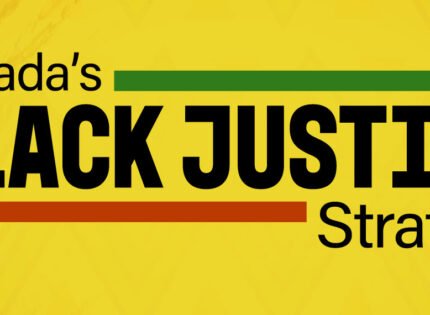In his insightful article, “Profiling the Future: The Long Struggle Against Police Racial Profiling in Montreal,” Associate Professor Ted Rutland from Concordia University explores the persistent battle against racial profiling in Montreal, tracing its origins to the late 1970s. Rutland highlights how, during this pivotal era, Black communities and anti-racist organizations successfully brought the issue of racial profiling into the public spotlight, urging both the city of Montreal and its police service to adopt measures to combat this widespread problem. His analysis of racial profiling by the Service de police de la Ville de Montréal (SPVM) offers a compelling critique of nearly fifty years of disconnection between the community’s sustained calls for action and the relatively limited initiatives that Montreal has implemented in response. Rutland’s work underscores the urgent need for meaningful reform and accountability in addressing the ongoing challenges of racial profiling in the city.
The practice of “interpellations” or “street-checks” by the police in Montreal has been a
persistent concern in this city, particularly highlighted in the mid-1980s when members of the Black community in the Little Burgundy neighborhood began to raise their voices. During this period, many young Black individuals reported distressing encounters with two officers from Station 24, who became notorious for their aggressive tactics and were colloquially referred to as “Batman and Robin.” Residents expressed feelings of being unfairly targeted, as these officers routinely demanded identification, conducted searches, and even took photographs of them, contributing to a climate of fear and mistrust within the community.
In the 1984 study “And justice for all: a report on the relations between the MUC police and visible minorities in Montreal”, the Centre for Research-Action on Race Relations (CRARR) emerged as a ground-breaking organization, conducting one of the first research that highlighted the widespread issue of police harassment directed at Black and racialized communities in Montreal. This harassment was particularly pronounced within the operations of the Communauté Urbaine de Montréal (CUM), the predecessor to the current SPVM. Through its pioneering work, CRARR has played a crucial role in bringing attention to these injustices and advocating for meaningful change for more than forty years.
In its 2012-2014 plan to combat racial profiling, the Montreal police acknowledged that racial and social profiling undermines effective and intelligent law enforcement. Director Marc Parent candidly recognized that, despite previous reform efforts, certain practices and perceptions of racial profiling persisted within the SPVM. In response, a new policy was implemented to address these issues.
The policy aimed to ensure compliance with Section 15 of the Canadian Charter of Rights and Freedoms and Section 10 of the Quebec Charter of Human Rights and Freedoms. It sought to establish clear guidelines for the SPVM’s strategies, tactics, operational policies, and regulations, with a specific focus on preventing discriminatory practices. Importantly, the policy also aimed to protect police officers from “unfounded” accusations of racial or social profiling. It was emphasized to SPVM personnel that nothing in the policy or its intervention procedures should be interpreted as limiting their ability to perform their duties.
Despite the strategic plan implemented from 2012 to 2014, the SPVM continued its practice of “interpellations” without interruption. A subsequent report, commissioned by the Montreal police in 2015 to assess the effectiveness of their strategic plan, was withheld from the public for over two years by city officials. As had become customary, a leak of the report revealed that many proposed measures to combat profiling within the Montreal police force were never realized due to a lack of funding.
The report included a survey conducted by Dr. Myrna Lashley, a professor of psychiatry at McGill University and chair of the Cross-Cultural Roundtable on Security at the time. Police officers were invited to complete a questionnaire, and the low participation rate, along with the survey’s findings, highlighted significant internal resistance to addressing racial profiling. Out of 6,000 officers contacted, only 184 participated. The majority reported that the training had not led to any meaningful change in their self-awareness or their perceptions of their colleagues’ actions. Furthermore, they indicated that complaints against the police had little to no effect on their subsequent behavior. Most officers who participated in the survey believed that the nature of crimes in Montreal varied according to the racial or social characteristics of the neighborhoods.
In December 2018, the SPVM launched a “new” three-year strategic plan aimed at addressing racial and social profiling within its ranks. This initiative was hailed as a significant milestone by city councillor and then Public Security Commission President Alex Norris, who described it as “the most ambitious and comprehensive effort ever undertaken by the Montreal police to combat and prevent racial and social profiling”. A key element of the plan involved the recruitment of three independent researchers tasked with collecting and analyzing data on police interactions, marking a proactive step toward transparency and accountability.
In 2020, the SPVM introduced its inaugural interpellation policy in response to the widespread protests that erupted following the tragic death of George Floyd. This initiative was further prompted by a preliminary report by the independent researchers indicating that Black, Indigenous, and Arab individuals were being stopped disproportionately compared to their representation in Montreal’s population. At that time, the SPVM committed to ensuring that interpellations would henceforth be grounded in “observable facts” rather than biases, with the goal of enhancing accountability and fostering trust within the community.
The SPVM defines an “interpellation” or “street-check” as an action taken by a police officer to identify an individual and gather information when that person is not legally required to provide identification or answer questions. According to its policy, the SPVM says that an interpellation is not classified as a police interaction and does not equate to a form of detention. The police specifies that these actions are initiated based on “observable facts” or information that provide the officer with a legitimate reason to intervene as part of their policing responsibilities.
To be clear, an interpellation is not a traffic stop. Interpellations typically occur in public spaces, private areas, or any location where police engage with the public while on foot. According to the policy, this may encompass scenarios where the agent seeks to ‘assist individuals in distress,” “identify wanted persons” including those highlighted on “wanted posters,” runaways, or missing individuals “gather information about suspicious activities to detect or prevent criminal, penal, or regulatory offenses,” “collect data regarding potential criminal, penal, or regulatory violations,” or ‘acquire intelligence on individuals reasonably suspected of engaging in illegal activities.”
During these encounters, the police collect and store various pieces of information internally. This data may include details such as the individual’s gender, race, the reason for the interaction, the location of the encounter, and the names of any associates present. The SPVM claim that this information is compiled to create an “intelligence” database for potential future use; however, the specific purposes for this data collection remain ambiguous.
In 2009, the SPVM engaged criminologist Mathieu Charest to analyze police activities in the Montréal-Nord neighborhood. During his investigation, Charest uncovered that the SPVM maintained a database containing 10,000 names that it suspected were associated with street gangs. This was particularly striking given that the police service at the time estimated that only around 500 individuals in Montreal were actual gang members! Guilty by alleged possible association? While these interactions do not result in a criminal record, the information obtained during an interpellation could potentially resurface during a police background check when an individual applies for a position that requires a security clearance. In my journey, I have encountered numerous cases where individuals with no criminal records were denied employment in security-sensitive roles due to information found in these types of databases.















